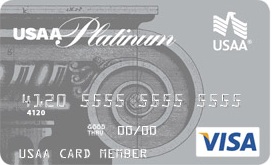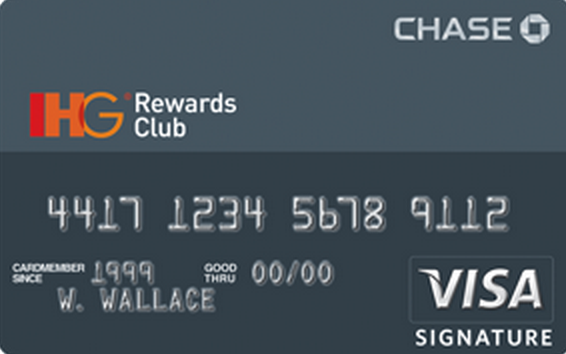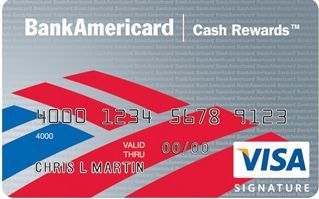- myFICO® Forums
- Types of Credit
- Credit Cards
- Re: Fraud detection with AMEX ... how does it work...
- Subscribe to RSS Feed
- Mark Topic as New
- Mark Topic as Read
- Float this Topic for Current User
- Bookmark
- Subscribe
- Mute
- Printer Friendly Page
Fraud detection with AMEX ... how does it work?
Is your credit card giving you the perks you want?
Browse credit cards from a variety of issuers to see if there's a better card for you.
- Mark as New
- Bookmark
- Subscribe
- Mute
- Subscribe to RSS Feed
- Permalink
- Report Inappropriate Content
Fraud detection with AMEX ... how does it work?
I've always wondered how internal fraud detection mechanisms work at AMEX and other credit providers.
A bit of background: I have three AMEX cards, all dated back to an opening date of 1980, and use them on a fairly regular basis. In 2013 I charged and paid off about $32,000 across all three cards. One of the cards is an Optima Platinum that I've had for many years and it has a CL of $38,000. I only used it twice last year, one of the charges being $19,900 in March 2013 which sailed through with no questions asked at a local merchant. I didn't use it again until Dec 31st when I was in Aruba on vacation and used it for a $15,000 purchase. Not a peep, it passed right through, no questions asked. Two weeks later, and before the $15,000 appeared on my statement, I used it for a phone purchase in Florida for $19,000. Again, no questions asked. So that's about 89% of my CL on this card which AMEX didn't have a problem with. Today at 8AM my phone rings and it's AMEX's fraud detection department questioning a charge of $54 that was attempted yesterday which was flagged. I'm glad they picked up on the fraud, but wonder how they knew a $15,000 foreign purchase and a $19,000 phone purchase were legit, but the $54 was not.
AMEX is sending out a new card to be delivered next Monday, but I'm more curious in how they figured what was fraud and what was not. Obviously their systems are sophisticated to detect this, I supposed based on my prior use and charge patterns.
- Mark as New
- Bookmark
- Subscribe
- Mute
- Subscribe to RSS Feed
- Permalink
- Report Inappropriate Content
Re: Fraud detection with AMEX ... how does it work?
There are many, many factors that automated frauds systems look at. And each bank has their own criteria, so there is no perfect answer. Odds are only a few people at Amex really know for certain how their system works. However, generally speaking a few things can trigger an alert:
1) Purchases at seemingly normal merchants that have recently been targets of credit card fraud.
2) Purchases at merchants that are used extensively for fraud.
3) Small 'test' transactions that indicate someone is checking to see if your card is valid.
4) Purchases of certain items or combinations of transactions that are indicative of fraud.
5) Purchases at merchants you've never done business with before and that don't fit in with your normal spending patterns.
6) A swiped two different merchants in a short time period where the two locations are far away from each other.
7) Repetitive transactions of similar nature in a short period of time.
8) Progressively larger dollar amount transactions that are otherwise suspicious.
9) Countless other industry secret identifiers.
Remember, it's not just your transaction that they are looking at, it's millions of other peoples. Data mining is a powerful thing. Also, Amex, being the owner of the processing network, usually has details about the transaction that other banks may not have access to over Visa/MC's network. Like particular item information. I read somewhere that they can see, from some merchants, clothing sizes, and may flag transactions if a ton of clothing in unusual (for you) sizes are purchased.
Rumor has it that one way to get your card flagged as possibly stolen was to charge two gas station fuel transactions and then go buy a pair of sneakers. Apparently this behavior was commonly used by credit card thieves. Go figure.









Limits: PRG=NPSL, CSP=$16k, BCP=$30k, DIT=$15k, USAA=$6k, CDW=$12.5k, IHG=$9k, BBY=$2k, BOA=$13k
- Mark as New
- Bookmark
- Subscribe
- Mute
- Subscribe to RSS Feed
- Permalink
- Report Inappropriate Content
Re: Fraud detection with AMEX ... how does it work?
I work in the fraud dept back office, but mostly with debit cards. My company works mainly with smaller banks and credit unions, and they all have different parameters as to what sets off the system. There are also certain trends that will be the hot thing for a bit, and then die down. For example, this time last year a (supposedly) clothing company out of Australia was dominating the fraud charts, and it was always for $1.99, always 100% fraud. That is almost non existent now, and what we are currently seeing are a lot of what we call the "hotel transactions". It is not one particular hotel, but it is always less for $10, and they always deduct and then credit the account. Of course, this will probably die down within the next few months and the next thing will come along. I can't speak for credit cards, they may be different.
What I can tell you is NOT fraud and many will try to claim it is:
Epoch, MBIProbiller, CCBilling, AMDE, etc.... these are merchant processors who do a lot of business with adult entertainment. ![]() Except for AMDE which is Ashley Madison (Or AMSE, I forget which...) But anyway, this is how it goes:
Except for AMDE which is Ashley Madison (Or AMSE, I forget which...) But anyway, this is how it goes:
Older men - Will always fess up: "Yeah, I did that..."
Younger Men - Will skirt the issue: "Well, I was on this website, and it asked me to put in my debit card number for age verification, but I didn't know they were going to charge me, and I don't want that to go through now..."
Middle Aged Married Men - A mix between older/younger responses: "Yeah, well, this site asked me for age verifi---ahh, hell, we're both adults. I was looking at porn."
Middle Aged/ Older Married Women - "No one in my family would ever do that!! My husband says it is fraud."
Young Women - Sadly, I have had a handful burst into tears. No joke. One woman I could hear her teeth grating as she said "I have to talk to my husband".
Don't get me wrong, I have seen it where these particular transactions were fraud, but they were usually accompanied in a slew of other things that were obviously fraud. When it is stand alone most of the time it was the cardholder who did it.